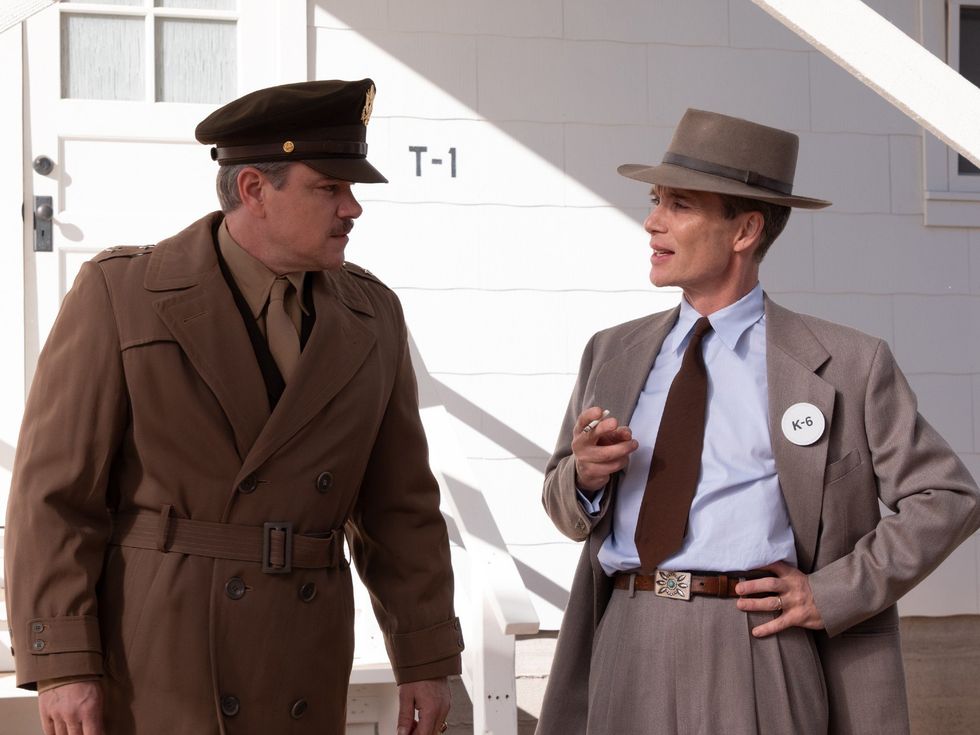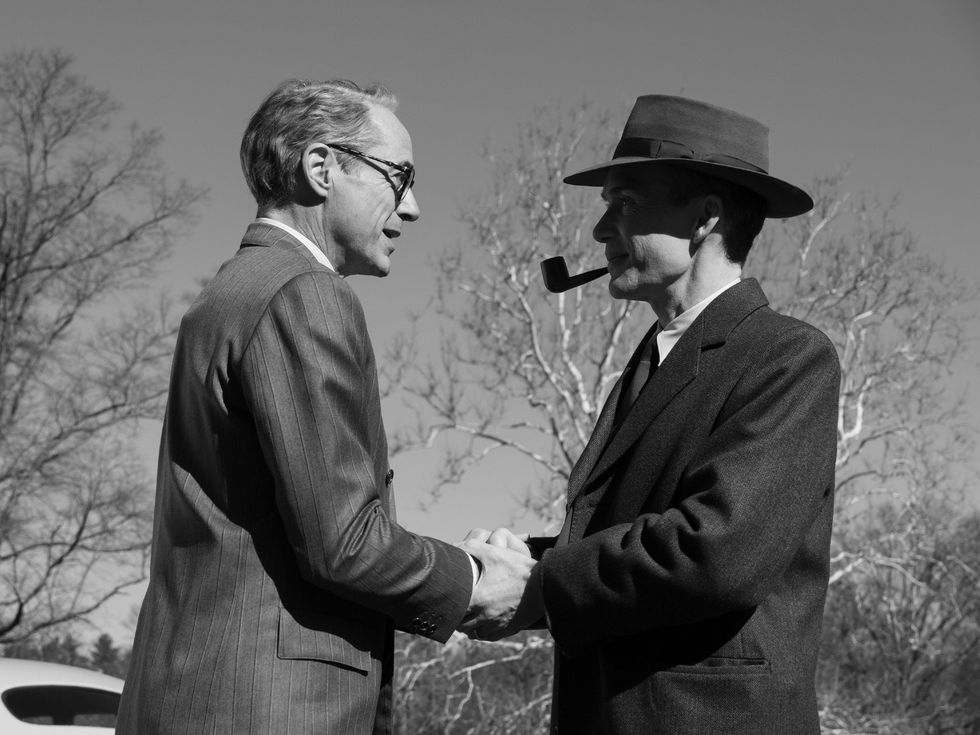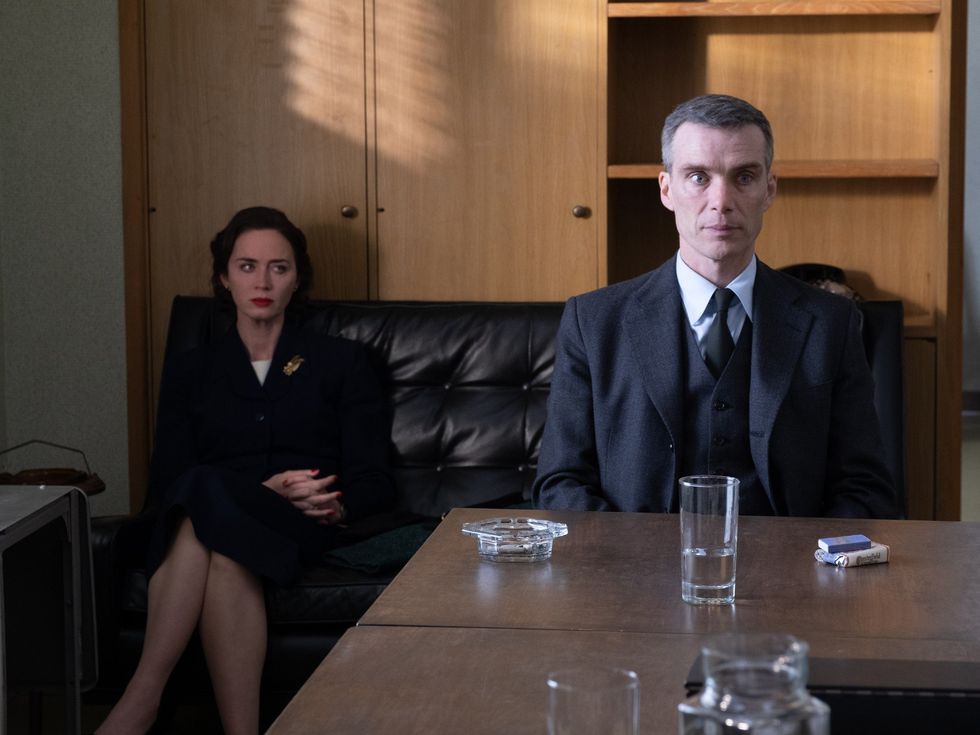big bang
Oppenheimer explodes on grand scale with powerful characters and commanding lead performance
Writer/director Christopher Nolan loves to manipulate time in his movies, from the told-in-reverse Memento to the dream state in Inception to the time inversion in Tenet. Most of his films require a second or even third viewing to start to grasp exactly what he’s trying to say, much less the subtle nuances hidden within the complex storytelling.
His latest trick/film, Oppenheimer, does plenty of hopping back and forth in time, but in the more conventional guise of a biopic. It’s a deep, three-hour dive into the complicated life of J. Robert Oppenheimer (Cillian Murphy), considered to be the father of the atomic bomb. Over three hours, the audience is shown different periods of his life, including as a promising student, as a professor at Caltech, as the leader of the scientific team creating the atomic bomb in New Mexico, and his post-war life in which he would face scrutiny over his political beliefs and more.
The film is packed to the gills with characters, so densely that it’s nearly impossible to keep track of everyone and their relationships. Among the most important ones are Oppenheimer’s wife, Kitty (Emily Blunt), with whom he has a strained relationship; Leslie Groves (Matt Damon), who leads the military component of the bomb project; and Lewis Strauss (Robert Downey, Jr.), a colleague of Oppenheimer who led the U.S. Atomic Energy Commission.
This is Nolan’s first biopic, but he’s still true to his inimitable style, flitting around to the different eras of Oppenheimer’s life so often and so quickly that it takes a good hour to understand exactly when and where specific scenes are taking place. As with his previous films, he doesn’t bother to hold the audience’s hands, instead throwing character after character at them with abandon. And despite the fact that this leads to confusion over even the names of certain people, it’s done in such a manner that the overall tone of the film is what matters most.
In another filmmaker’s hands, the story might come off as dry and stodgy, but the pace with which the film is edited, as well as the propulsive score from Ludwig Göransson, gives it the feel of a thriller for much of its running time. The film is reminiscent of Oliver Stone’s JFK, with its re-evaluation of a historical moment, scenes involving government hearings, segments of the film being in black-and-white, and even a cameo by Gary Oldman as a very notable person.
The film does flag a bit in its final hour as it tackles Oppenheimer contemplating what he has wrought on the world, as well as his legacy. And despite Nolan using IMAX cameras to supposedly make the film a visual extravaganza, it’s unclear what purpose that served, as there are relatively few moments that pop, even the movie's signature moment (Full disclosure: The screening I attended was in 70 mm, not IMAX).
Murphy has more often than not played supporting characters in his career, but he commands every second he’s on screen here. He employs a unique not-quite monotone and straightforward delivery that keeps him riveting throughout. There are too many other actors to properly laud them all, but Damon, Downey, and Florence Pugh in a small-but-essential role are among the other standouts.
Oppenheimer is grand in scale, with an immense number of characters and storylines, but Nolan directs the film in such a way that it feels manageable as a viewer. The implications of the story are dire, but the filmgoing experience watching it transpire is anything but.
-----
Oppenheimer opens in theaters on July 21.



